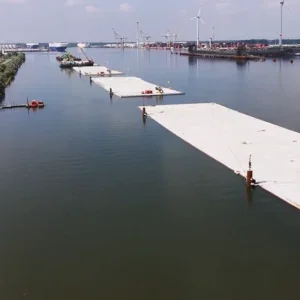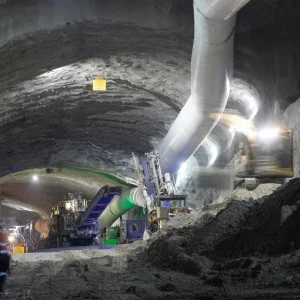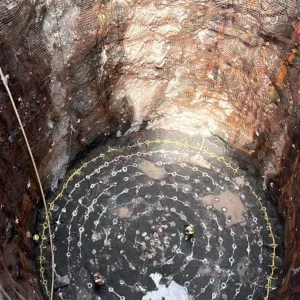It’s hard to get away from the thorny issue of spent nuclear fuel disposal at the moment. Not that that’s a bad thing, it’s definitely not a subject we should be running away from or burying our heads in the sand over. Most industry experts agree that deep level underground disposal is the way to go, but this method in itself brings significant challenges – even before adoption. For a start you have to convince licensing authorities and a nervous general public that the technical and geological challenges associated with isolating radioactive material for tens of thousands of years, deep underground, can be overcome.
On p14 this month we have a very interesting article from Finland’s Onkalo nuclear repository, which throws up some intriguing issues over the management of such large-scale, long-term schemes. Still in its early days, the initial tunnelling works can be seen as a massive ground investigation programme. If the drilling results show suitable ground conditions for a repository, then, and only then, will the go ahead be given in 2015 for the construction of a huge network of deep level storage tunnels that will house the high level waste canisters from 2020 onwards. If the ground results are bad, the repository in canned!
Obviously, key to the decision to press on will be the consistency of results from the drilling works to indicate sound conditions. It’s regarding this that the Onkalo site has thrown up an interesting conundrum. The contractor responsible for the tunnelling has asked, after just one year, and been granted leave from the project to pursue other works. The upshot is the client has taken over all tunnelling works with the aim of generating complete consistency in the early works research. When you consider that this massive project could still come to nothing if the investigation shows negative conditions, it becomes clear that over the next eight or nine years that the reliability of the investigation information will be paramount.
With such long-term (up to 20 years) project scopes, it seems vital that early stage agreements are made between the clients (who are responsible for disposal) and contractors/consultants working on the repository construction. Could lessons be learned from some of the large PFI schemes up and running at the moment? Or maybe more specifically the Framework agreements currently formed between, for example, water companies and utility contractors in the UK? There could be a lot of money to be made out of entering such an agreement, and rarely for our industry, the promise of some real long-term work.
Now is the time to start looking into these potential hurdles that will face the nuclear industry in its quest for an underground solution. The problem won’t go away, and it could be a very financially rewarding problem for the tunnelling industry to help sort out. To see how you could get involved in this potential mass market see p18!!
Tris Thomas







